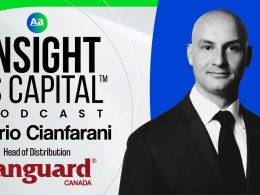How to Help Clients Avoid Self-Destructive Financial Behavior
by Commonwealth Financial Network
 I’ve heard advisors ask, “Why does my client want to go to cash when his portfolio has lost only nominal money?” or “Why is my client blaming me for something she pushed for months ago?” Rather than trying to explain why their instincts are wrong, it can be more effective to instead just affirm their feelings and then redirect their energy.
I’ve heard advisors ask, “Why does my client want to go to cash when his portfolio has lost only nominal money?” or “Why is my client blaming me for something she pushed for months ago?” Rather than trying to explain why their instincts are wrong, it can be more effective to instead just affirm their feelings and then redirect their energy.
Keep in mind that most of these “bad behaviors” are brought about by the cognitive biases at play in the majority of us. Although each bias may carry multiple names, the underlying notions are consistent. For example, you’re probably familiar with the concept of herd behavior, our tendency to follow the crowd. When Jim Cramer is yelling, “GO TO CASH! THE SKY IS FALLING!” the instinct for many clients is to run in the direction he’s pointing.
Let’s take a look at how to help clients avoid self-destructive financial behavior, including tactics for getting them back on track.
Whether it’s herd behavior or something else causing anxiety, for most people, action is the antidote for anxiety. Unfortunately for you, even if you tell your clients to sit tight, they’ll still want to take some action—even if it's the wrong action. Instead of telling them to do nothing, try to find healthy actions they can take. You could do things together (like rerunning their likelihood of achieving their stated goals), or you could suggest things they could do on their own (like observing their spending for a couple of weeks). Just be sure to frame whatever it is in the light of them “taking action.”
Control. People want to feel in control, often if it even means depriving themselves. For clients who would enjoy it, you could suggest they go beyond observing and actually try a spending experiment:
For the next two weeks, see how little you can spend while still thoroughly enjoying life. At the end, let’s talk and see how it went. In the scenarios we’ve run, you’re most likely not going to need to cut spending, but if you know just how much control you have over your spending, you may be relieved to know that you can still enjoy life.
Healthy distractions. For others, employing healthy distractions can be effective. You can say something along these lines:
You’ve told me how stressed you get when you focus on the stock market. But, at the same time, you know that you’re in good shape financially and that I would let you know if we needed to reassess. Some of my clients have asked me to remind them to focus on the things they most enjoy or that they can most control. In that light, when you call about something out of our control, like the state of the economy, would it be helpful for me to nudge you to play more tennis instead of watching Jim Cramer?
To make all of this worse, in hindsight, humans tend to attribute good outcomes to our own wise actions and bad outcomes to other people’s faults or bad luck. Known as self-serving bias, this is why some clients may seem to blame you for drops in their account values when you haven’t done anything wrong (and even when you protested). I find it useful to separate these kinds of interactions into two buckets: isolated meltdowns that you can weather versus consistent bad behavior that you should curb.
Isolated meltdowns. Nearly all clients will experience fear that they vent as frustration, anger, or blame. When clients have an isolated blowup, ask them what could be learned from this situation that you can bring into future decision making. If you think they're fearful about some future bad outcome, ask them about best, worst, and most likely cases, and what proactive action you can take to optimize for a good outcome.
They will be prompted to verbalize their fears and their more rational thoughts. Plus, it will all come from them, so they’ll be more likely to believe it in the future. If you handle these meltdowns well, you’ll stand out from the pack of advisors who tend to avoid these difficult conversations altogether.
Consistent bad behavior. For some clients, meltdowns happen more regularly. I’ve worked with many advisors on this issue, and, ultimately, the most effective technique is tough love. On the “tough” side, you’re standing firmly on your integrity; on the “love” side, you’re ensuring that clients know you care.
Let’s say you’re working with a difficult client, Carl, who periodically blows up at you or your staff. If you are at the point where you're comfortable with the possibility of losing this client, but you'd like to try fixing this, you might say something like:
Carl, this has to stop. When you reach out with frustration or push hard for us to do a particular thing that I’ve said is inadvisable, it makes it impossible for me to serve you with integrity. I love what I do, I care about you, and I take your financial health seriously. It’s painful when I see you pushing for actions that I’ve seen cripple people’s ability to stay retired or achieve their other goals.
In the end, you may have to be very firm:
Carl, I would love to serve you for decades to come, but I’m not willing to have our relationship continue as it is. Here’s what I need from now on . . .
Most advisors who have done this have been surprised to find that clients like Carl often reform. And if Carl chooses to leave, you can replace him with three or four great clients who take less time and aggravation.
Human behavior is just as much art as science, and like investing, even your best wisdom and efforts will only optimize your chances of success. In the end, your clients are most likely to follow advice they gave themselves, so rather than wish that they acted as they should, it’s far better to help them prepare for what is.
What strategies do you use to help your clients avoid self-destructive behavior? How do you manage client meltdowns? Please share your thoughts with us below.
Commonwealth Financial Network is the nation’s largest privately held independent broker/dealer-RIA. This post originally appeared on Commonwealth Independent Advisor, the firm’s corporate blog.
Copyright © Commonwealth Financial Network

















